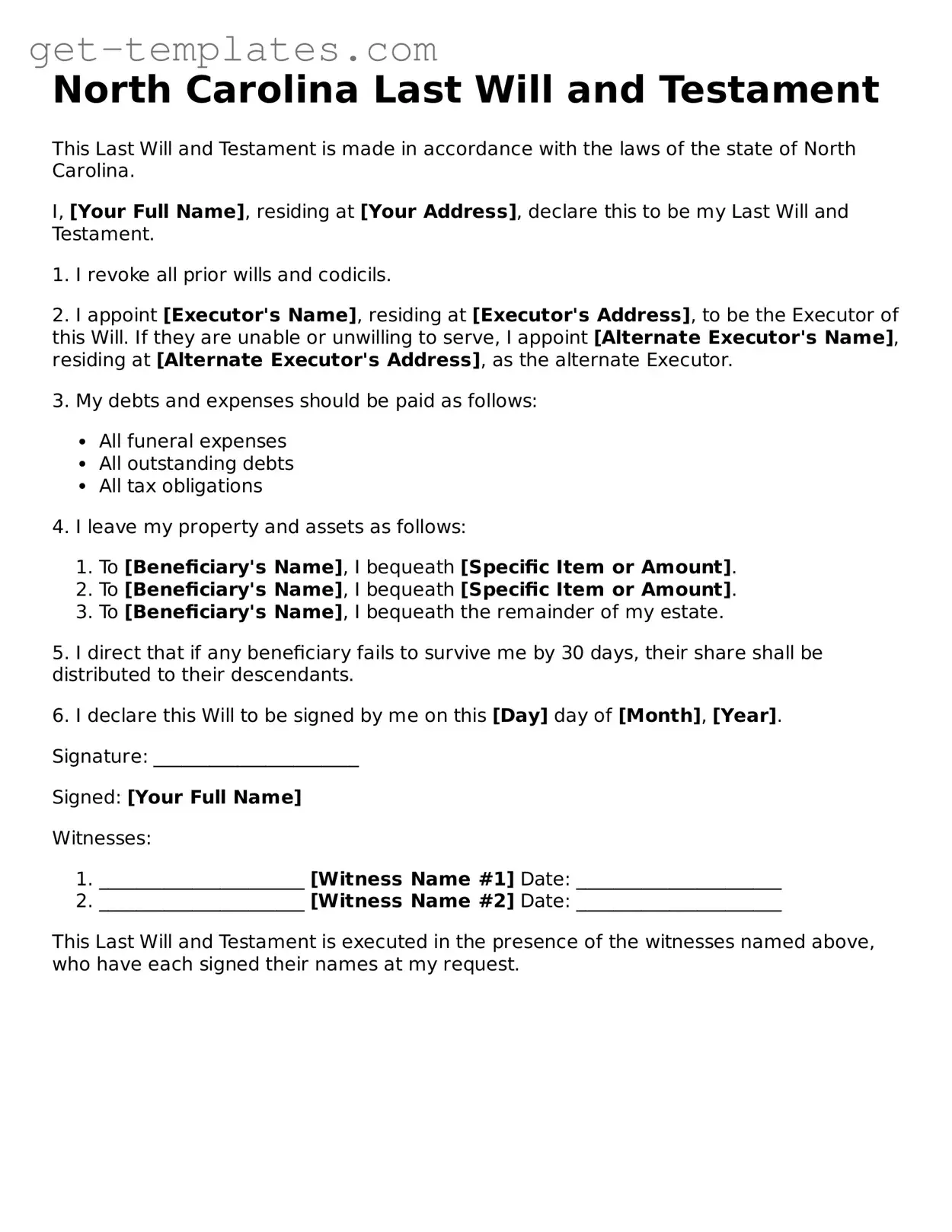Attorney-Approved Last Will and Testament Document for North Carolina
The North Carolina Last Will and Testament form is a legal document that outlines an individual's wishes regarding the distribution of their assets after death. This form serves as a crucial tool for ensuring that personal property is transferred according to the deceased's intentions. Understanding its components can help individuals navigate the estate planning process effectively.
Get Document Online

Attorney-Approved Last Will and Testament Document for North Carolina
Get Document Online
You’re halfway through — finish the form
Finish Last Will and Testament online — edit, save, download made easy.
Get Document Online
or
⇓ PDF Form
